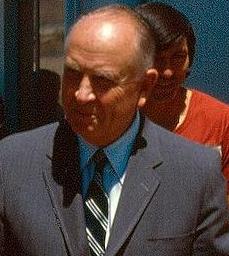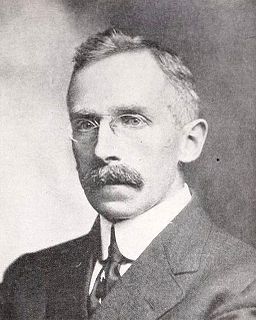A Quote by Karl Popper
Philosophy is a necessary activity because we, all of us, take a great number of things for granted, and many of these assumptions are of a philosophical character; we act on them in private life, in politics, in our work, and in every other sphere of our lives -- but while some of these assumptions are no doubt true, it is likely, that more are false and some are harmful. So the critical examination of our presuppositions -- which is a philosophical activity -- is morally as well as intellectually important.
Quote Topics
Act
Activity
Assumptions
Because
Character
Critical
Doubt
Every
Examination
False
Granted
Great
Harmful
Important
Intellectually
Life
Likely
Lives
Many
Morally
More
Necessary
No Doubt
Number
Other
Our
Our Lives
Philosophical
Philosophy
Politics
Private
Private Life
Some
Sphere
Take
Them
Things
True
Us
Well
Which
While
Work
Related Quotes
There will be some fundamental assumptions which adherents of all the variant systems within the epoch unconsciously presuppose. Such assumptions appear so obvious that people do not know what they are assuming because no other way of putting things has ever occurred to them. With these assumptions a certain limited number of types of philosophic systems are possible, and this group of systems constitutes the philosophy of the epoch.
Dialogue is a space where we may see the assumptions which lay beneath the surface of our thoughts, assumptions which drive us, assumptions around which we build organizations, create economies, form nations and religions. These assumptions become habitual, mental habits that drive us, confuse us and prevent our responding intelligently to the challenges we face every day.
A worldview is a commitment, a fundamental orientation of the heart, that can be expressed as a story or in a set of presuppositions (assumptions which may be true, partially true or entirely false) which we hold (consciously or subconsciously, consistently or inconsistently) about the basic constitution of reality, and that provides the foundations on which we live and more and have our being.
Philosophy aims at the logical clarification of thoughts. Philosophy is not a body of doctrine but an activity. A philosophical work consists essentially of elucidations. Philosophy does not result in 'philosophical propositions', but rather in the clarification of propositions. Without philosophy thoughts are, as it were, cloudy and indistinct: its task is to make them clear and to give them sharp boundaries.
It's so easy in life for us to receive blessings, many of them almost uncounted, and have things happen in our lives that can help change our lives, improve our lives, and bring the Spirit into our lives. But we sometimes take them for granted. How grateful we should be for the blessings that the gospel of Jesus Christ brings into our hearts and souls. I would remind all of you that if we're ever going to show gratitude properly to our Heavenly Father, we should do it with all of our heart, might, mind, and strength-because it was He who gave us life and breath
Public life, politics and industry should all of them be within our sphere of influence.... If we are to infiltrate the professional and social activities of other people I think we must imitate the Totalitarians and organize some kind of fifth column activity! If better ideas on mental health are to progress and spread we, as the salesmen, must lose our identity... Let us all, therefore, very secretly be 'fifth columnists.'
If others tell us something we make assumptions, and if they don't tell us something we make assumptions to fulfill our need to know and to replace the need to communicate. Even if we hear something and we don't understand we make assumptions about what it means and then believe the assumptions. We make all sorts of assumptions because we don't have the courage to ask questions.
We have a tendency to make assumptions about everything! The problem with making assumptions is that we believe they are truth. We could swear they are real. We make assumptions about what others are doing or thinking-we take it personally-then we blame them and react by sending emotional poison in our word. That is why whenever we make assumptions, we're asking for problems. We make assumptions, we misunderstand, we take it personally, and we end up creating a whole big drama for nothing.
Many of us understand giving, but some of us may still be confused about the meaning of forgiveness. Some people may go through life in a groveling mode, mistakenly believing they have to receive forgiveness from others. Forgiveness offers more than a reprieve granted to us by another person. True forgiveness is a process of giving up the false for the true and allows us to rid our thinking of rigid ideas. We can develop the flexibility to change our mind and our behavior patterns to higher and greater expressions and find new avenues to freedom.
Well, one measure of a good life, I think, is to be engaged in projects that one thinks are meaningful and worthwhile. So I would put the emphasis of a good life on activity, on the walk rather than the destination, and I think that most of the things that any of us do that are really valuable and really important are projects that we really shouldn't expect to be completed in our lifetime because if they could completed in our lifetime, they probably wouldn't be so important that we should devote our lives to them.
Many of the greatest works of philosophy seem to me to be valuable not because of their arguments, but because they offer us perspectives that open up new possibilities. They show us how we might start in different places, and not buy into the assumptions tacitly made on the first pages of the philosophical works that have influenced us.
We like to continue to believe what we have been accustomed to accept as true, and the resentment aroused when doubt is cast upon any of our assumptions leads us to seek every manner of excuse for clinging to them. The result is that most of our so-called reasoning consists in finding arguments for going on believing as we already do.
Philosophy, though unable to tell us with certainty what is the true answer to the doubts which it raises, is able to suggest many possiblities which enlarge our thoughts and free them from the tyranny of custom. Thus, while diminishing our feeling of certainty as to what things are, it greatly increases our knowledge as to what the may be; it removes the somewhat arrogant dogmatism of those who have never travelled into the region of liberating doubt, and it keeps alive our sense of wonder by showing familar things in an unfamilar aspect
Politics? Boring? Politics is history on the wing! What other sphere of human activity calls forth all that is most noble in men's souls, and all that is most base? Or has such excitement? Or more vividly exposes our strengths and weaknesses? Boring? You might as well say that life itself is boring!







































